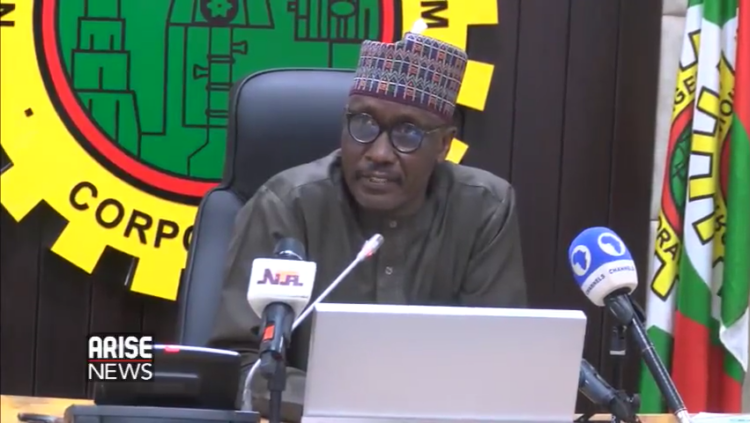The Group Chief Executive Officer of the Nigeria National Petroleum Corporation Limited (NNPCL), Mele Kyari, has said local communities and some churches and mosques are the biggest culprit in the theft of petroleum products in the country.
This was disclosed by Kyari at the weekly Ministerial Media Briefing organized by the Presidential Media Team on Tuesday in Abuja.
He said churches, mosques, security agencies as well as communities where pipelines pass through were involved in pipeline vandalism and theft of petroleum products.
Mr Kyari said so far, the NNPC, in conjunction with security agencies, had destroyed 959 metal tanks for storage purposes, 737 ovens, 452 dug-out pits, 355 cooking pots, and 179 wooden boats between April and August, this year.
He said security officials also recovered 207 pumping machines, 12 welding machines, two power generators, and two filling machines.
Kyari said 11 vessels, 30 speed boats, 37 trucks and cars were impounded, while 122 suspects were arrested in connection with various cases of theft of petroleum products.
He said, “As you may also be aware, because of the very unfortunate acts of vandals along our major pipelines from Atlas Cove all the way to Ibadan, and all others connecting all the 37 depots that we have across the country.
“You know, none of them can take delivery of products today.
Mr Kyari said, “And the reason is very simple. For some of the lines, for instance, from Warri to Benin, we haven’t operated that line for 15 years. Every molecule of product that we put gets lost.
“And of course you remember the tragic fire incident very close to Warri, close to Sapele that killed so many people.
“So, we had to shut it down and as we speak, the level of losses that we have on our product pipeline, and I’m sure you may have seen it and I’ll invite you at the right time so we can take a look at it jointly.”
He also recalled the fire outbreak that happened in the Lagos area, adding, “in one of our pipelines, we discovered that some of the pipelines were actually connected to individuals homes.”
“And not only that, and with all sensitivity to our religious beliefs, you know, some of the pipelines and some of the products that we found, were actually in churches and in mosques.
“That means that everybody is involved. There is no way you will take products, bring in trucks in populated neighborhoods, load it and leave without everybody else knowing about it,” he said.









